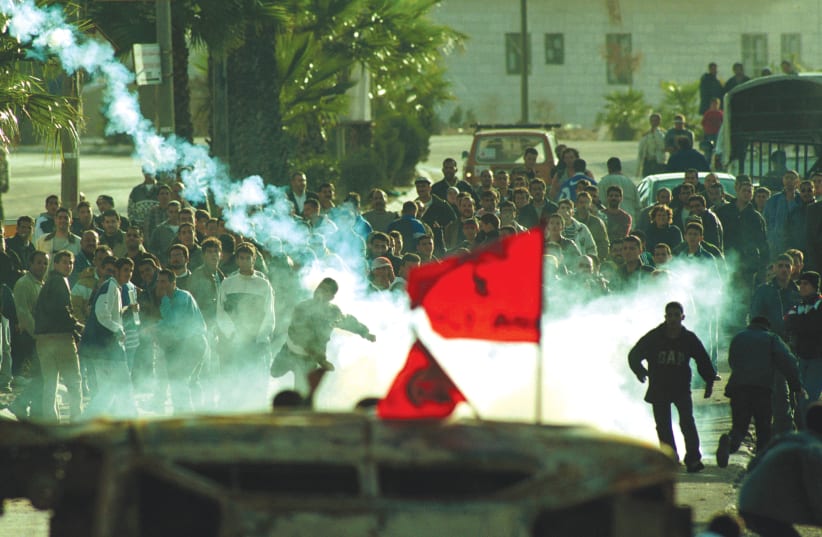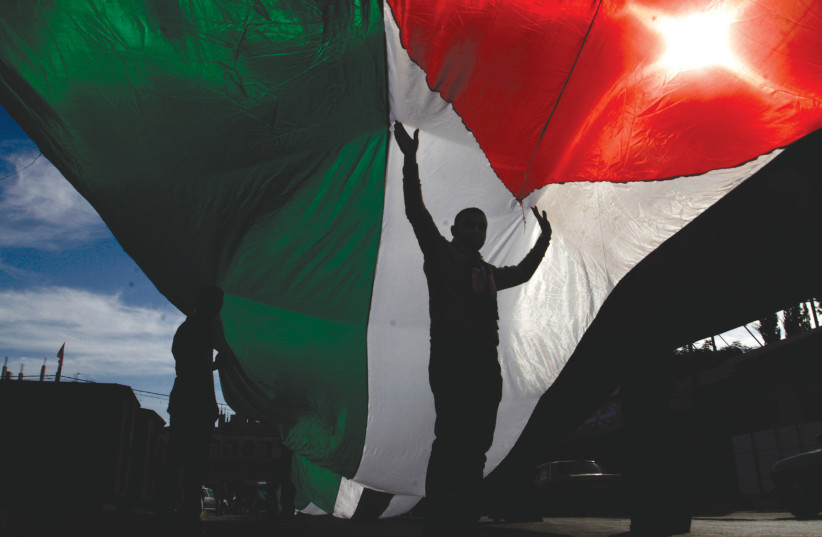I made aliyah (immigrated to Israel) 45 years ago at the age of 22 from New York. I was a young Zionist activist. I joined the Zionist Youth Movement, Young Judaea when I was 14 years old. I rapidly rose to positions of leadership in the movement. In my senior year of high school, I was the president of the Long Island region of Young Judaea, one of the largest and most successful in the whole country. I spent the year between high school and university in Israel on the movement’s “Year Course” program.
I was on Kibbutz Ein Harod Ihud for half a year and then spent half a year in Jerusalem. Even before that year, after visiting Israel twice during high school, I knew that after completing my BA (in politics and history of the Middle East) I would make Israel my home. In the “movement,” we were taught that making aliyah – moving to Israel - was more than a simple change of address. Making aliyah is to change the essence of our life and to make a real contribution to Israel.
Prior to moving to Israel, I understood that the primary existential question facing Israel was that if Israel continued to control the territories it conquered in June 1967, eventually there would be a Palestinian majority between the river and the sea. In the movement, we learned that the cornerstone of Zionism was ensuring a Jewish majority in the State of Israel.
Until the past couple of years, I believed that there was a possibility that Israel would enter into a genuine peace process with the Palestinians and that an independent Palestinian state could be established in the West Bank and Gaza with Jerusalem as a shared capital. If that were to happen, Israel could remain the democratic nation-state of the Jewish people with a clear Jewish majority.
I fundamentally believed that true democracy and equality between all of Israel’s citizens was possible, on the condition that the two-state solution could be implemented. In my mind, the creation of a Palestinian state was the ultimate fulfillment of the Zionist dream.
The peace camps are dead and the Zionist dream is now a nightmare
Following the assassination of prime minister Rabin, the Second Intifada which killed the peace camps on both sides, the failure of the peace process, the lack of interest or political will in the international community and the complete loss of belief that peace is possible in both Israeli and Palestinian societies, the Zionist dream has become a nightmare. Keeping a Jewish majority while maintaining control over millions of Palestinians is impossible if democratic values are important and essential.
Israel is not the safe haven for Jews that the Zionist leaders spoke about. It is in fact, one of the least safe places in the world to be a Jew. I believe that after the Holocaust there was a moral imperative for the creation of the State of Israel as a national home for the Jewish people. But we must also recognize that the slogan, “a land without a people for a people without a land” was a total lie.
FOR TWO thousand years, the Jews wandered around the world stateless, but there were always others living in this land. There was, for most of the time, a small Jewish community in the Land of Israel, but they were a small minority, living with the indigenous Arabs who had lived here for centuries. With the rise of nationalism at the end of the 19th century and the beginning of the 20th century, political Zionism was born. But it was not alone in the world.
Palestinian nationalism was being born at the same time and there are ample historical facts and documents to prove that (if we were ready and willing to examine historical facts objectively). Palestinian nationalism is a reality, and the clash between it and Zionism, mixed with extreme religious beliefs gives rise to political fanaticism that exists in both Israel and Palestine.
The Zionist enterprise succeeded – perhaps beyond anyone’s wildest dreams. It is in fact one of the most successful political movements in modern history. We are now seventy-five years after the birth of the State of Israel. The Zionist enterprise has become misguided and even evil at times; its institutions carry out policies of ethnic cleansing and its name is used to justify building illegal settlements on Palestinians’ land.
Zionist responses toward Palestinians are actions taken by Israel that often include violence, state terrorism, collective punishment, and even war crimes, according to international law. It matters not whether the Palestinians carry out violent attacks or non-violent diplomatic moves, such as going to the International Criminal Court against Israel – the Israeli response is almost always the same.
I have struggled with my own Zionist past. For quite some time I have ceased calling myself a Zionist. I cannot identify with what is done in the name of Zionism. Israel has proven that it cannot be Jewish and democratic. (Some say it is Jewish for Arabs and democratic for Jews!).
I must live with the contradiction that I am living in Israel for 45 years as someone who came here under the Zionist Law of Return. I have raised a family here and have been part of the Zionist movement for most of my life. Israel is my home and there is no other place in the world that I want to live in.
I am an Israeli and as an Israeli citizen I will continue to use my rights to fight to make Israel a true democracy that lives in peace with its Palestinian neighbors. I will continue to fight, so that Israel becomes the state of all of its citizens who have to enjoy full equality – as stated in Israel’s Declaration of Independence.
I still recognize the importance of having a territory in which Jews have the liberty to live as Jews, to develop and protect their culture, and to have physical and national security. I think that it is important that Jews who are in danger around the world – because they are Jews – know that they have a home to come to when and if needed. The root causes of why the Zionist movement was established are still valid.
I recognize the historic and religious importance of the Land of Israel and the city of Jerusalem to the Jewish people. But without any contradiction at all, I also recognize the historic and religious importance of Al Quds and Palestine to the Palestinian people. This is a land of two peoples and significant to three monotheistic religions. Neither people is going to leave this land, and both peoples have deep connections to all parts of the Land.
I do not profess to know what the solution is for finding a way to live in peace on this land. I do know that it can only be done by good people on both sides working together to make peace a reality.
The writer is a political and social entrepreneur who has dedicated his life to the State of Israel and to peace between Israel and its neighbors. He is now directing The Holy Land Bond.

